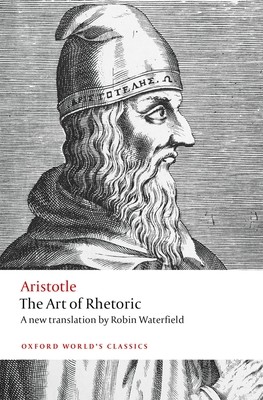
- We will send in 10–14 business days.
- Author: Aristotle
- Publisher: Oxford University Press, USA
- ISBN-10: 019872425X
- ISBN-13: 9780198724254
- Format: 13 x 19.8 x 1.3 cm, minkšti viršeliai
- Language: English
- SAVE -10% with code: EXTRA
Reviews
Description
For all men are persuaded by considerations of where their interest lies... Aristotle's Art of Rhetoric is the earliest systematic treatment of the subject, and it remains among the most incisive works on rhetoric that we possess. In it, we are asked: What is a good speech? What do popular audiences find persuasive? How does one compose a persuasive speech? Aristotle considers these questions in the context of the ancient Greek democratic city-state, in which large audiences of ordinary citizens listened to speeches pro and con before casting the votes that made the laws, decided the policies, and settled the cases in court. Persuasion by means of the spoken word was the vehicle for conducting politics and administering the law. After stating the basic principles of persuasive speech, Aristotle places rhetoric in relation to allied fields such as politics, ethics, psychology, and logic, and he demonstrates how to construct a persuasive case for any kind of plea on any subject of communal concern. Aristotle views persuasion flexibly, examining how speakersshould devise arguments, evoke emotions, and demonstrate their own credibility. The treatise provides ample evidence of Aristotle's unique and brilliant manner of thinking, and has had a profound influence on later attempts to understand what makes speech persuasive. The new translation of the text is accompanied by an introduction discussing the political, philosophical, and rhetorical background to Aristotle's treatise, as well as the composition and transmission of the original text and an account of Aristotle's life.
- Author: Aristotle
- Publisher: Oxford University Press, USA
- ISBN-10: 019872425X
- ISBN-13: 9780198724254
- Format: 13 x 19.8 x 1.3 cm, minkšti viršeliai
- Language: English English
should devise arguments, evoke emotions, and demonstrate their own credibility. The treatise provides ample evidence of Aristotle's unique and brilliant manner of thinking, and has had a profound influence on later attempts to understand what makes speech persuasive. The new translation of the text is accompanied by an introduction discussing the political, philosophical, and rhetorical background to Aristotle's treatise, as well as the composition and transmission of the original text and an account of Aristotle's life.


Reviews